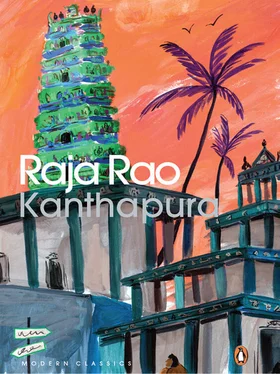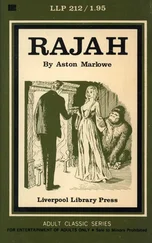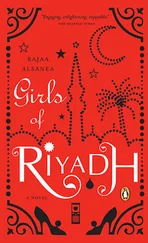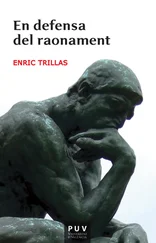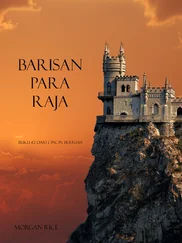Raja Rao - Kanthapura
Здесь есть возможность читать онлайн «Raja Rao - Kanthapura» весь текст электронной книги совершенно бесплатно (целиком полную версию без сокращений). В некоторых случаях можно слушать аудио, скачать через торрент в формате fb2 и присутствует краткое содержание. Год выпуска: 2014, Издательство: Penguin, Жанр: Классическая проза, на английском языке. Описание произведения, (предисловие) а так же отзывы посетителей доступны на портале библиотеки ЛибКат.
- Название:Kanthapura
- Автор:
- Издательство:Penguin
- Жанр:
- Год:2014
- ISBN:нет данных
- Рейтинг книги:3 / 5. Голосов: 1
-
Избранное:Добавить в избранное
- Отзывы:
-
Ваша оценка:
- 60
- 1
- 2
- 3
- 4
- 5
Kanthapura: краткое содержание, описание и аннотация
Предлагаем к чтению аннотацию, описание, краткое содержание или предисловие (зависит от того, что написал сам автор книги «Kanthapura»). Если вы не нашли необходимую информацию о книге — напишите в комментариях, мы постараемся отыскать её.
Kanthapura — читать онлайн бесплатно полную книгу (весь текст) целиком
Ниже представлен текст книги, разбитый по страницам. Система сохранения места последней прочитанной страницы, позволяет с удобством читать онлайн бесплатно книгу «Kanthapura», без необходимости каждый раз заново искать на чём Вы остановились. Поставьте закладку, и сможете в любой момент перейти на страницу, на которой закончили чтение.
Интервал:
Закладка:
And there was a shuddered silence, like the silence of a jungle after a tiger has roared over the evening river, and then, like a jungle cry of crickets and frogs and hyenas and bison and jackals, we all groaned and shrieked and sobbed, and we rushed this side to the canal-bund and that side to the coconut garden, and this side to the sugar cane field and that side to the bel field bund, and we fell and we rose, and we crouched and we rose, and we ducked beneath the rice harvests and we rose, and we fell over stones and we rose again, over field-bunds and canal-bunds and garden-bunds did we rush, and the children held to our saris and some held to our breasts and the night-blind held to our hands; and we could hear the splash of the canal water and the trundling of the gun-carts, and from behind a tree or stone or bund, we could see before us, there, beneath the Bebbur mound, the white city boys grouped like a plantain grove, and women round them and behind them, and the flag still flying over them. And the soldiers shouted, ‘Disperse or we fire,’ but the boys answered, ‘Brothers, we are non-violent,’ and the soldiers said, ‘Non-violent or not, you cannot march this side of the fields,’ and the boys answered, ‘The fields are ours,’ and the soldiers said, ‘The fields are bought, you pigs.’ And a peasant voice from the back says, ‘It’s we who have put the plough to the earth and fed her with water,’ and the soldiers say, ‘He, stop that, you village kids,’ and the boys say, ‘Brother, the earth is ours, and you are ours too, brown like this earth is your skin and mine,’ and a soldier shouts out, ‘Oh, no more of this panchayat — we ask you again, disperse, and do not force us to fire!’ Then, it is Ratna’s voice that says, ‘Forward, brothers, in the name of the Mahatma!’ and everybody takes it up and shouts, ‘Mahatma Gandhi ki jai!’ and marches forward. And a shower of shots suddenly burst into the air, and we close our eyes, and when we open them again there is not a cry nor shout and the boys are still marching forward, and the soldiers are retreating, and we say, ‘So that was false firing.’ But the city boys will not stop, and the crowd moves on and on, and beneath the stars there is a veritable moving mound of them from the Bebbur field to the canal field.
And we say, ‘Let us rush behind Bhatta’s sugar canes, there they cannot catch us, for if they come to one row, we will slip into another,’ and we stumble and rise again, and we hold to our children and the night-blind, and we duck and we rise again, and, our eyes fixed on the soldiers, we rush towards Bhatta’s sugar cane field. And when we are there, Satamma says, ‘The snakes, the snakes!’ and we say, ‘If our karma is that, may it be so,’ and we huddle behind the sugar cane reeds and we lie along the sugar cane ditches, and we peep across the dark, watery fields, and the children begin to say, ‘I am afraid, I am afraid,’ and we say, ‘Wait a moment, wait, and it will be over soon.’ And, our hearts tied up in our sari-fringes, we gaze beyond the dead harvest growth, and the crowd still moves forward towards the gaslights, and by the gaslights the coolies still bend their heads and cut the harvest, and a man is there, crying out, swearing away — their maistri. And the nearer the crowd comes to the coolies the louder is the shout, ‘Gandhi Mahatma ki jai! Inquilab Zindabad! Inquilab Zindabad!’ And suddenly we see shadows moving in the Skeffington Coffee Estate, shadows moving like buffaloes on a harvest night, and not a voice comes from them, and we say, ‘Surely, they are not our men,’ and yet we say, ‘The Skeffington coolies will not let us down.’ And then, as the pumpkin moon is just rising over the Beda Ghats, there comes a sudden cry from the top of the Bebbur mound, and we jump to our feet and we ask, ‘Oh, what can it be, what?’ and a flag is seen moving in the hands of a white-clad man, and the police boots are crunching upon the sand, and we say somebody is running towards the barricades — but who? And the crowd is still by the Bebbur field, and the flag is still there, and there is a furious cry coming from the Bebbur mound gate and a crash is heard, and we hear the coolies rushing at the barricades and they, too, have a flag in their hands and they blow a trumpet and shout out, ‘Vandè Mataram! Mataram Vandè!’ and there is an answer from the crowd below, ‘Inquilab Zindabad! Inquilab Zindabad!’ and between them is Rangè Gowda’s big field and the Bebbur field and the triangular field.
And of a sudden the coolies of the city stop work and at a command the lights are all put out, and there is nothing but the rising moon and a rag of cloud here and there and all the stars of night and the shining dome of the Kenchamma temple, and the winking lantern from the Skeffington bungalow. And the Skeffington coolies, black with their white dhotis, tumble and rush down, and there is another shot in the air, and this time we see the flag of the coolies flutter as they advance towards the crouching barricades; and a white officer is there, and there is surely a horse beneath him, for he is there, he is there, he is everywhere, and one of the soldiers cries out something from the barricades, and the coolies answer one and all, ‘Mahatma Gandhi ki jai!’ and then someone sets fire to a dhoti and throws it at the soldiers, and there is a long, confused cry like that of children, and we see lathis rising and falling, darting and dipping like fishes, and the coolies shout out, ‘Mahatma Gandhi ki jai! To the fields! To the barricades, brothers!’ And the crowd below, wading through the harvests, shouts back, ‘Say, brother, Inquilab Zindabad! Mahatma Gandhi ki jai!’ And they seem so near the Skeffington coolies that they have just to jump and they will be at the top of the mound and the Skeffington coolies have just to jump down and they will be with the crowd, and between them stand the city coolies, white and bearded and motionless. And when the Skeffington coolies shout again, ‘Inquilab Zindabad! Inquilab Zindabad! Say, brother, Inquilab Zindabad!’ a volley spits into the air, and in the silence that follows, there is a voice that shouts out, ‘Stop, or we shoot.’—’Shoot!’ answers one of the coolies, and a shot bursts straight at him, and another and yet another, and there are cries and gasps, and people beat their mouths and lament, and the crowd below feels so furious that, shouting ‘Inquilab Zindabad!’ they run forward, and the police can stop them no more, and they jump over field-bunds and tumble against gaslights and fall over rocks and sheafs, sickles, and scythes, three thousand men in all, and from the top of the mound soldiers open fire.
And there follows a long tilting silence, and then yells and moans and groans again. And we say, ‘No, we can see this no more, we, too, shall be with them.’ But Lingamma says she is feeling like doing something, and Lakshamma says her heart is fainting, and Nanjamma says, ‘I’ll be with the children.’ So Vedamma and Seethamma and Lakshamma and I, we go up behind the crowd, and the bullets scream through the air, like flying snakes taken fire, they wheeze and hiss and slash against the trees, or fall hissing into the canal, and Vedamma gets a bullet in the left leg, and we put her on the field-bund, and we tear up a little paddy and we lay her on it and she says, ‘Rama-Rama, I’m dying — Rama-Rama, I’m dying,’ and we say, ‘No, it’s only the leg,’ but she says, ‘No, no,’ but we know it is well, and there is such a cry, such a lamentation from the crowd, that our hearts are squeezed like a wet cloth, and we say, ‘Vedamma, Vedamma, stop here and we will get some help.’ And already in the big field men are being bandaged, and we say, ‘Brother, brother, there is a woman wounded,’ and somebody says, ‘Ramu, go and see her.’ And a Volunteer hurries torch in hand to bandage Vedamma, and we see already, two, three, four stretchers bearing away the wounded, and they say the Congress ambulance is there, that it had slipped through swamp and jungle, and the wounded would be carried to it. And we say, ‘How are things going, brother?’ and the Volunteer says, ‘They are resisting,’ and we ask, ‘And women, are there some women?’ and he says, ‘Why, there are many.’—’And you are a city boy?’ we ask—’Yes, yes, sister,’ he says, and we say, ‘We’ll follow you,’ and he says, ‘Come,’ and we run behind him, and the shots fall here and fall there, and in the darkness we can see a white group of men moving up, a white group of city boys, and behind them are women, and behind the women the crowd again, and the wounded shriek from this field and from that, voices of men and boys and old women, and above it all rises from the front ranks the song:
Читать дальшеИнтервал:
Закладка:
Похожие книги на «Kanthapura»
Представляем Вашему вниманию похожие книги на «Kanthapura» списком для выбора. Мы отобрали схожую по названию и смыслу литературу в надежде предоставить читателям больше вариантов отыскать новые, интересные, ещё непрочитанные произведения.
Обсуждение, отзывы о книге «Kanthapura» и просто собственные мнения читателей. Оставьте ваши комментарии, напишите, что Вы думаете о произведении, его смысле или главных героях. Укажите что конкретно понравилось, а что нет, и почему Вы так считаете.
